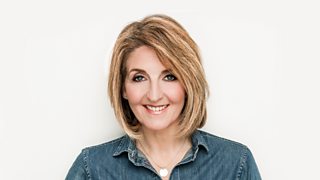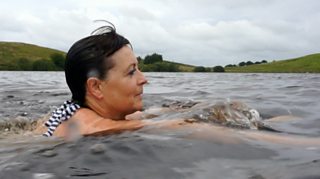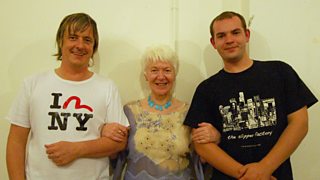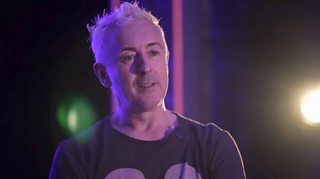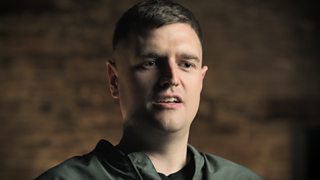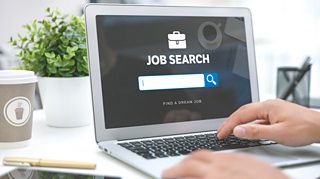Professor Jason Leitch answers your coronavirus questions
Professor Jason Leitch, the National Clinical Director of the Scottish Government, joined Kaye Adams to discuss the latest Covid-19 health guidance (as of 16 March 2020) and answered listeners' questions on Radio Scotland's Mornings
The public has been divided into four categories:
Group 1: Those with symptoms
"If you have a new persistent cough and/or a fever your whole household has to now stay home for 14 days. If you live by yourself the seven day rule applies."
Group 2: The clinically high risk – e.g. chemotherapy patients
"They’re going to get individual contact from the health service, and they’re going to be told what to do by this weekend."
Group 3: The over 70s; people who get flu vaccine for health reasons; and pregnant women
"Cut back social contact as much as you can – nothing non-essential. Do not go to work. Do not travel on public transport, do not have large family gatherings."
Group 4: Everybody else
"We’re asking as many people as possible to work from home. Don’t use public transport unless you absolutely have to. Do not meet in big groups or socially in small groups."

The Q&A
Here are some of the key questions and answers from the programme.
My daughter is in category 3; am I right to keep her out of school?
"Yes. What we’re trying to do is reduce the risk in those who are vulnerable."
Professor Leitch advised that not going to school doesn't mean cutting yourself off from society. Small groups of asymptomatic friends can visit, provided they wash their hands.
Should my March wedding go ahead?
"It should not. Not in a big room."
Do asymptomatic children have to stop socialising?
"They don’t, but they have to adapt," advised Professor Leitch.
"We realise that it's difficult to ask teenagers not to gather, and not every household has Netflix and iPads.
"The is a really good resource for young people about how they can behave during this pandemic."
I'm category 3 and look after elderly parents and young grandchildren, what should I not do?
"As much as you possibly can, reduce social contact," said Professor Leitch. "Of course, keep in touch with family but you have to be very careful with your parents. We’re trying to protect the vulnerable in the community.
"If you can have the grandchildren looked after somewhere else you should do that. But if they have to come, you should be cautious about distancing, make sure they wash their hands when they arrive. Don’t hug or kiss them."
I’m category 3, self employed and work mostly alone. Should I stay away from work?
According to Professor Leitch this very much depends on the type of work you do.
"If you have no contact with people then I think you can go to your work. It’s about social contact, you shouldn’t use public transport if you don’t have to. You should stay away from other people as much as you can."
What does social distancing mean?
Professor Leitch explained: "The science requires the virus to be in fluid, to transport in some form to the next person and that person to take it in.
"I would have to cough or spit either at you directly or on to a surface that you then touched and put in your nose, your eyes, or your mouth. The science says that you need to be 2 metres apart for that to be almost impossible. Within a metre it’s difficult; if we’re closer than a metre it’s likely. So keeping that level of social distancing is going to be helpful."
More on the coronavirus pandemic
Watch in full
On ±«Óãtv Sounds
-
![]()
Mornings
Kaye Adams gets to the heart of the stories making the news.
Latest features from ±«Óãtv Scotland
-
![]()
'Wild swimming helps me process the grief of losing my son'
The benefits of cold water therapy.
-
![]()
Winter adventures are appealing, but an expert advises caution
Trips in winter require particular knowledge and skills.
-
![]()
The rescuers: Why volunteers risk their lives in mountain emergencies
Landward meets members of the Cairngorm Mountain Rescue Team.
-
![]()
‘Look for the light’ – practical tips to help you through another winter with SAD
Useful advice and tips to combat low moods at this time of year.
-
![]()
How you could be a binge drinker without even knowing
Binge drinking is classed as fewer units than many people may realise.
-
![]()
How chocolate biscuits and drama classes helped one man leave prison behind
The healing power of creativity.
-
![]()
'When people believe in you, it’s life-changing'
Author Graeme Armstrong revisits the man who helped turn his life around.
-
![]()
The 'breath-taking' display of US birds swept on to British soil
Recent storms have brought rare birds to our shores.
-
![]()
Six things we learned about Alan Cumming on Take the Floor (Spoiler: includes accordions)
The actor spoke to Take the Floor's Gary Innes.
-
![]()
How street gangs trap young men in a dangerous cycle of violence
The almost inescapable pull of life in a gang.
-
![]()
Why stylist Gok Wan believes there's no such thing as bad fashion
The fashion expert says we should stop following rules and do what feels right.
-
![]()
Is sending a CV still the right way to apply for a job?
They've been central to job applications for years, but are they worth it?
